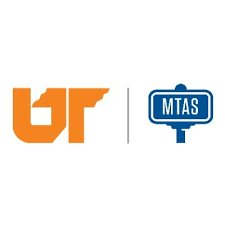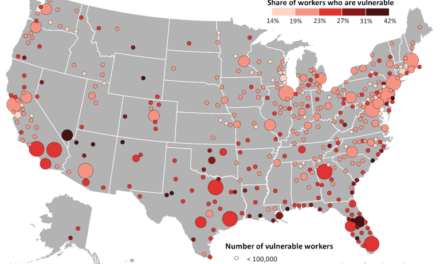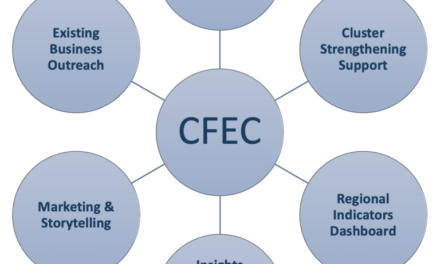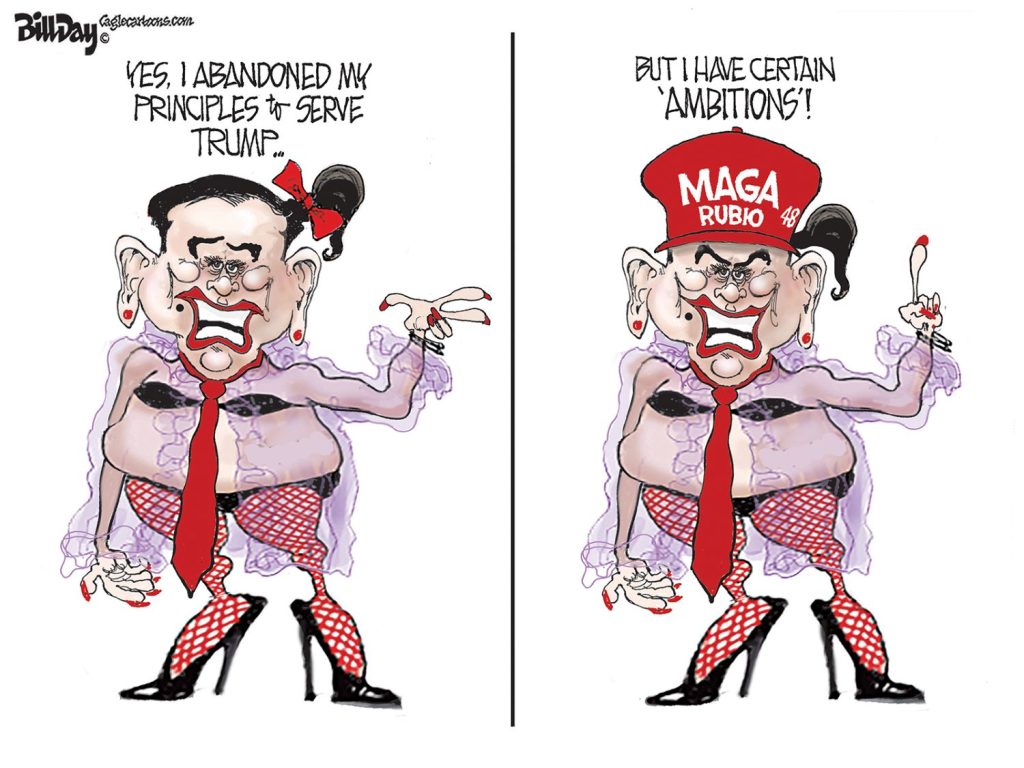Thumbnail: Despite the regular talking points about PILOTs, City Hall – in a bubble surrounded by people who benefit from the tax breaks – has no way of knowing if the tax breaks are justified. If city mayors want to hand out PILOTs, Shelby County Government’s taxes should be exempt because they support safety net programs and education.
**
In Memphis Mayor Jim Strickland’s recent Weekly Update, he again put forth his regular defense of EDGE’s PILOT program.
“We reduce the property tax we charge for a few years to get projects that would have either gone somewhere else or wouldn’t have happened at all,” he wrote.
The problem: he has no way of knowing that.
City Hall doesn’t really know if the companies would have gone somewhere else or if they would have happened without a tax giveaway.
They may be favorite talking points, but they are more wishful thinking than fact.
That’s because the PILOT process isn’t a real negotiation. It’s more about companies saying the magic words – “we’re thinking about North Mississippi” – and filling out an application and checking boxes in a matrix that in turn gives them the answer of how many years of tax breaks they’ll get.
Political Rhetoric
The “but for” process has unfortunately become little more than window dressing, and because of it, Memphis – when compared to peer cities – doles out incentives that are significantly more money than its rivals.
And when the mayor says the tax breaks are “for a few years,” well, tax breaks here last as long as 15 years for many and that term is doubled if a company like International Paper says it’s thinking about moving – despite the far-fetched nature of the idea.
In other words, a first grader in Memphis will be getting ready to graduate from college before many of these companies pay their fair share of property taxes – and for some companies shaking down Memphis for the unjustifiable “retention PILOTs,” that same six-year-old will be in his mid-30s paying his own taxes before these major companies manage to do the same.
In those 30 years, about $2.4 billion in city-county taxes will be waived in PILOTs, shifting the costs of these major companies onto small businesses and homeowners.
Life In The Bubble
Most of all, the PILOT process lacks checks and balances and honest brokers, because everyone in it has a personal stake in it being approved.
It’s the reality of anyone sitting in the mayor’s office: they are essentially in a bubble. They hear from staff, recruiters, site selection consultants, lawyers, tax break beneficiaries, and economic development officials…all with vested interests in the program continuing.
There’s staff who think PILOTs are smart politics and others who tell the mayor what they think he wants to hear. There are people who commend him for backing policies that benefit them and who contribute to political campaigns. There are economic development officials who convince him that Memphis has to pay companies to love it. There are those who assure him that he doesn’t need to look at what other cities are doing with incentives because our PILOTs are so effective.
And all the while, we extol our world-class logistics assets; our four R’s – road, rail, runway, river; the power of our airport; and the presence of FedEx and UPS, but if this is the case why do we have to hand out tax breaks for distribution and warehousing operations?
And why is no one coming forward with a plan that turns Memphis and Shelby County into a place where we don’t have to dole hundreds of PILOTs because we can attract companies based on our talent, technology, and quality of place? And what if PILOTs were reduced to 50%?
More Of The Same
It’s telling that after 40 years of tax breaks totaling several billion dollars, we still hear the same recycled justifications for the tax breaks.
What’s most amazing of all is that in the midst of the steady stream of justifications, there’s an amazing, if not appalling, lack of curiosity about the real facts about PILOTs, the jacked-up economic impact reports, the scurrilous retention PILOTs, and the flawed fundamentals of our PILOT programs.
As a result, it’s no wonder that we are grappling with the same problems that have bedeviled Memphis for the past two decades. It is the absolute price that is paid for lack of imagination and courage to do something different.
Here’s the proverbial bottom line: if the mayor of Memphis or any municipality in Shelby County wants to give away taxes with little accountability or third party validation, that’s fine. But, Shelby County Government should not have its taxes waived as part of it.
After all, as the local government responsible for education and social net funding, county government can ill afford to lose taxes because every time a PILOT is approved, schools lose money.
Here’s an abridged post updated from January 21, 2020:
Shelby County Mayor Lee Harris has shown an openness to new thinking on old issues, so here’s our modest suggestion for a new decade: Shelby County Government should get out of the PILOT business.
After all, in the past decade, the 10 agencies with the power to waive taxes have subsidized companies to the tune of almost a billion dollars in Shelby County taxes.
The loss of this amount of taxes has never come into starker relief than it did when Shelby County struggled to find $9-10 million for public transit. There is the yearly need – if not crisis – in school funding exceeds that.
More money is needed for better salaries and parental leave for county workers. There are commissioners who would like to reduce the tax rate.
Shelby County needs better juvenile detention facilities and a new main jail. More funds could allow more youths to participate in the Mayor’s Summer Work Experience Program.
Including PILOTs As An Option
In other words, there are a multitude of deep needs for more revenues for the programs mandated on county government by the state constitution and its own vital social net services.
And yet, time after time, year after year, when the discussions about the need for more revenues take place, the PILOT program is treated as untouchable and inevitably goes unmentioned.
For example, the county board of commissioners was asked to pass a $20 increase in the wheel tax to provide $9 million in new funds for MATA with the addition of a political deal sweetener of $3.8 million for the Shelby County Sheriff’s Office.
That same amount of money could be produced by reducing the percentage of property taxes waived by PILOTs – from 75% to 60%. And the Shelby County Board of Commissioners can do that at any time.
Picking A Lane
Back to our modest proposal: if cities in Shelby County want to give tax freezes for new companies, old companies, destination retail, and apartments, so be it.
But Shelby County Government should save its PILOTs for projects that it considers truly transformative and extraordinary like major employers in innovation and technology.
Rather than give up county taxes for PILOTs, we suggest that Mayor Harris and county government’s emphasis should be on the other side of the economic development coin – workforce development.
As a result of the mayor’s work as chairman of the Workforce Investment Network, he has a passion about improving Shelby County workforce programs, which, despite decades of talk, remains challenging, if not bordering on ineffectual.
In its way, it could be directly related to our success in weaning ourselves from our addiction to tax freezes. That’s because for decades, one of the prime justifications for PILOTs has been that our workforce is so poor that we have to give away taxes to offset it.
A Distinction Without A Difference
We know that there are those in City Hall who get incensed by people who say that companies are being given cash as part of the economic development program. They are correct that no check is being written to companies that receive a PILOT, but in truth, it is a distinction without a difference.
Whether you give a developer or company cash or tell them they don’t have to pay millions in taxes, it’s essentially the same thing. It goes directly to the bottom line.
As we’ve pointed out before, as a City Councilman, Mr. Harris once suggested that taxpayers should have an equity position if these investments pay off, and that is especially true for the f apartment PILOTs approved by EDGE and Center City Revenue Finance Corporation.
At this point, we are hammered with the talking points that we should be excited to get 25% in new taxes at the same time that we give up 75%. Tax incentive advocates say often that the PILOTs make projects possible that would otherwise not take place.
However, we were told recently by someone who has prepared applications for tax freezes that he “can make the spreadsheets say whatever it needs to say” to justify the tax waiver. The fact that it sounds credible speaks to the need for an independent, third party expert to analyze applications to create more taxpayer confidence that every tax waiver is truly needed.
Schools Lose Money
No local government has more reason to change its philosophy toward PILOTs than Shelby County. That’s because every time a PILOT is approved, schools lose money, and 61% of county government’s property taxes is spent on education.
The 75% maximum threshold that governs PILOTs today was set decades ago as a response to complaints that the then-100% tax freezes were shortchanging schools. That resulted in the reduction to 75% which continues today, and now, each year, schools lose about $10-15 million.
There is no explanation for why Shelby County, like Hamilton County, doesn’t guarantee that schools are made whole when tax incentives are approved. As part of Hamilton County’s contracts for PILOTs from its Industrial Development Board, each company agrees that the tax incentive excludes school funding.
That said, Chattanooga and Hamilton County’s policies are more defensible than the ones here. There, it’s a rare PILOT that’s more than 10 years and some are for only two or three years. In addition, after protecting school funding, the amount of the PILOT descends in value over time.
For example, the PILOT for FedEx in Hamilton County was for eight years. In the first year, 100% of the company’s taxes will be waived; in the second year, FedEx will pay 25% of its taxes; in the third year, the company will pay 40%; and in the remaining five years, FedEx will pay 50% of its taxes.
There Is Another Way
It’s an interesting comparison since like Shelby County, Hamilton County sits on a state line and has to compete with another state. In Hamilton County’s case, it’s the significant gravitational pull of Atlanta, and yet, it manages to balance its competitive instincts with the obligations to its taxpayers.
Of course, there are dozens and dozens of studies that conclude that tax abatements are not the most important factor in a company’s decision about where to locate, and while PILOT advocates claim economic benefits, the Tennessee Advisory Commission on Intergovernmental Relations, the state government think tank, wrote: “It is unclear whether PILOTs offer much in the way of economic benefit…and some research has shown them not to be cost effective. They pull public spending away from things like education and infrastructure that could benefit businesses.”
That seems to be a direct message to Shelby County to rethink its PILOT policies.
***
Join us at the Smart City Memphis Facebook page for daily articles, reports, and commentaries relevant to Memphis.






